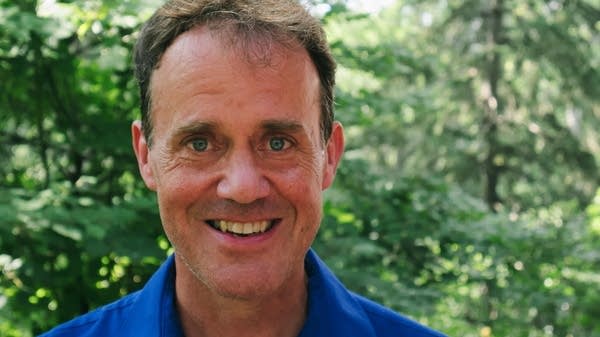In an unassuming storefront on the corner of Chicago Ave. and E. 53rd St. in Minneapolis is a new fixture in the community — a fixture whose goal is to expand and challenge how we listen to the world around us.
"The Resonance Box aims to bring attention to how we listen," founder Aida Shahghasemi says. "Through sound exhibits, workshops, lectures by scientists and musicians, listening tours, and intimate performances, the space strives to create 'new ears' for the community through which they can hopefully become much more active listeners of the world that surrounds them."
Shahghasemi emigrated with her family from Iran in the 1990s. They chose the Twin Cities because it's where her sister and uncle's family lived. From the start, music was a fixture in her home.

"I always loved listening to music," she says. "We had ample amounts of it growing up. I started with learning more Western classical music through the violin and flute in elementary school, but realized after a few years my calling was much closer to home than I was searching. I attended a Persian classical concert, and there was no turning back from that point. I started taking percussion lessons, then vocal training, then Western music theory, then Persian Kamancheh, also known as Spiked Fiddle, and it pretty much hasn't stopped."
Persian music continues to be a driving force in her efforts and is highly influential on her approach to open minds far beyond the confines of Western classical music and the ways we traditionally think of what we hear.
"It was different from the more Western form of music I was learning as a child through the violin in the sense that it is still very much based on the oral pedagogy," Shahghasemi says. "Violin was notes and lessons and practice, all of which I have become very attached to in my later years of musical practice; however, Persian music was reading poetry, studying Persian carpet patterns, and getting a lesson that relied on the cultivation of memory and emotional connection. The notes were simple stepping stones into a world of wonder and imagination." This ability to free-form and think beyond music in order to understand music is a big reason why The Resonance Box does far more than host performances; reaching out to academics and explorers of sound to cultivate an understanding of music as a representation of the world, an expression built on the foundations with which we live and experience the world around us.

"One of the ways that has worked rather well in explaining Persian classical repertoire is to identify its similarities to jazz," Shahghasemi says. "There are certain note and rhythmic guidelines to what one does in a particular mode, but you are encouraged to deviate within those frameworks in aesthetically pleasing ways."
In the Twin Cities community, Shahghasemi has found a support system for this kind of creativity and engagement. As she has developed her skills as a composer and performer, the community has continued to revitalize her; kept her from getting too caught up in the "what-ifs."
"I have been personally surprised by how well our intentions have been received — there are many moments of doubt, and fear is always hanging out in the corner. I can simply say that the community's reaction has been a big push in my motivation simply because I can see they get it. They get it, and they are into it. We may be making people listen better, after all."
Having been open for only four months, the Resonance Box is quickly becoming a must-attend space. Frequently events are standing room only, and Shahghasemi is beginning to think about how to build on that momentum with more video and audio work that can make these ideas accessible to those unable to attend.
"I wanted to take a tangent from doing purely musical work and see what and who is/are standing at the margins of the music world," she says. "I'm interested in exploring sound in its many ways, from classical music to pure noise. I'm interested in the legitimacy of sound as it pertains to us as a species inhabiting different spaces and not just as artists on pristine stages."
For Shahghasemi, the Resonance Box is about learning to listen; about providing an opportunity to teach people how to listen better and engage with their communities better.
"I have always thought listening is an important skill," she says. "It amazes me how we don't cultivate that ability more in our society. When I speak of listening, I don't mean listening better to music, which seems to be the takeaway for most, considering the context of my work. Listening well is so multidimensional. It has to do with being fully present when someone is speaking, especially if that person has an opposing point of view. It has to do with being aware of our surroundings by assessing distances of moving objects. It has to do with relating to our world. Listening isn't just waves through air hitting the ear drum; it is consciousness at varying levels, and it is essential to our livelihood."
Garrett Tiedemann is a freelance writer for Classical MPR who volunteers for the Resonance Box.
Love the music?
Show your support by making a gift to YourClassical.
Each day, we’re here for you with thoughtful streams that set the tone for your day – not to mention the stories and programs that inspire you to new discovery and help you explore the music you love.
YourClassical is available for free, because we are listener-supported public media. Take a moment to make your gift today.









